ESSENTIAL OILS FOR THE INTESTINE
antibiotic actionantiseptic actioncolitisdigestive actiondropsenteritisessential oilintestinesafestomachtoxicity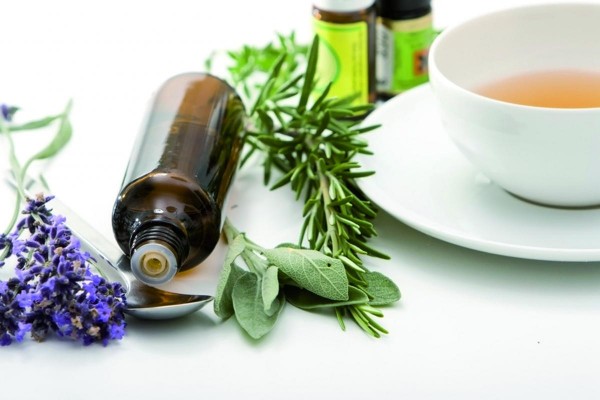
Often we mistakenly associate the word “natural” with “harmless“, but it is not always the case!
Let’s remember that the most powerful poisons discovered by man come from nature, like for example the hemlock or the curare.
The strength of phytotherapy is to have found the bridge that connects the ancient tradition of medicinal plants usage to the deep knowledge of chemistry, pharmacology and toxicology. This bridge made it possible to define the safety limits for certain drugs, such as for essential oils.
In fact, their internal administration has always been a subject of discussion, since it has never been defined completely safe, but even in this case everything is always a matter of quantity!
As already mentioned in previous articles, essential oils are extremely complex and concentrated compounds, which can cause irritations of the internal mucosa, photosensitization, and also much more serious effects.
This is true, but at what dosage?
There are numerous studies in the literature that highlight the toxicity of some essences.
Recently the RIFM (Research Institute for Fragrance Materials) has published tables on skin toxicity and oral toxicity of essential oils.
Reading the results we often notice only the fact that an essential oil can be toxic, forgetting to consider the dosage.
Essential oils are taken measured in drops; the dose that is defined toxic or even lethal is of hundreds of ml (of course also in this case there may be exceptions!).
Therefore if in the right dosage and under the strict supervision of a doctor, the oral administration of essential oils can be carried out.
Generally, essential oils are never taken pure, but with special dilutions, for example by putting a few drops of essential oil on a sugar cube, in a teaspoon of honey or jam, inside yogurt or on pieces of fruit.
Let’s focus now on essential oils that can have an effect on the intestine.
These act in different ways: thanks to their intense flavor and characteristic smell, some essential oils go to act on the gustative and olfactory nerve endings, stimulating the appetite and the secretion of saliva and gastric acid, thus improving the digestive function.
We are talking about essential oils with a digestive action such as anise, fennel, mint, sage, ginger, coriander, cumin and caraway.
But at the intestinal level, essential oils are mainly used in cases of inflammations, such as enteritis or colitis, thanks to their powerful antiseptic and antibiotic action.
It is called enteritis the inflammation located in the small intestine which depending on the cause, can be of an infectious, parasitic or toxic nature caused by adulterated foods or harmful substances produced by some microbes.
Colitis is instead an inflammation of the colon (second section of the large intestine) due to sedentary style, eating disorder and low-fiber diet.
In most cases, however, the causes reside in a certain predisposition and familiarity of the subject. There is also a strong correlation between emotional states (stress, anxiety, etc. ..) and the onset of this pathology.
In both cases essential oils with antispasmodic, anti-inflammatory and antiseptic action such as chamomile, peppermint, lavender, cinnamon, lemon, thyme and oregano are mainly used.
Naturally, the power of essential oils and in general of all medicinal plants can only be realized when we combine taking phytotherapic remedies with a healthy and balanced lifestyle, a diet rich in fruit and vegetables and healthy movement, better if out in nature!
Other articles that may interest you:
Essential oils: what are they?
 ESSENTIAL OILS: WELLNESS IN HOME
ESSENTIAL OILS: WELLNESS IN HOME THYME ESSENTIAL OIL: USES AND PROPERTIES
THYME ESSENTIAL OIL: USES AND PROPERTIES AROMATHERAPY: HOW TO CHOOSE AN ESSENTIAL OIL
AROMATHERAPY: HOW TO CHOOSE AN ESSENTIAL OIL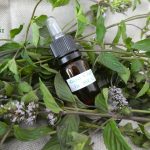 HOW TO DISTILL MINT
HOW TO DISTILL MINT AROMATHERAPY: HISTORY
AROMATHERAPY: HISTORY POTATO CHIPS WITH ROSEMARY AROMATIC WATER
POTATO CHIPS WITH ROSEMARY AROMATIC WATER ROSEMARY ESSENTIAL OIL: CULTIVATION AND PRODUCTION
ROSEMARY ESSENTIAL OIL: CULTIVATION AND PRODUCTION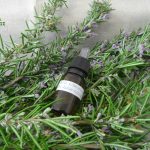 HOW TO DISTILL ROSEMARY
HOW TO DISTILL ROSEMARY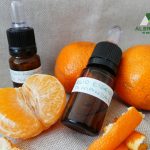 HOW TO DISTILL TANGERINE PEEL
HOW TO DISTILL TANGERINE PEEL NEEM OIL, FROM THE PLANT OF GOOD HEALTH
NEEM OIL, FROM THE PLANT OF GOOD HEALTH HERBAL TEAS, INFUSIONS AND DECOCTIONS: THE DIFFERENCES AND METHODS OF PREPARATION
HERBAL TEAS, INFUSIONS AND DECOCTIONS: THE DIFFERENCES AND METHODS OF PREPARATION HOW TO MAKE HOMEMADE ESSENTIAL OILS
HOW TO MAKE HOMEMADE ESSENTIAL OILS HEALTHY HAIR WITH AROMATIC PLANTS
HEALTHY HAIR WITH AROMATIC PLANTS THE GOOD NIGHT PLANTS
THE GOOD NIGHT PLANTS OLEOLITES: THE POWER OF HERBS IN OIL
OLEOLITES: THE POWER OF HERBS IN OIL ENFLEURAGE: ANCIENT TECHNIQUE TO EXTRACT ESSENCES FROM FLOWER PETALS
ENFLEURAGE: ANCIENT TECHNIQUE TO EXTRACT ESSENCES FROM FLOWER PETALS ESSENTIAL OILS AND ECOLOGICAL DETERGENTS FOR HOUSE CLEANING
ESSENTIAL OILS AND ECOLOGICAL DETERGENTS FOR HOUSE CLEANING OIL FOR STRENGTHENING HAIR
OIL FOR STRENGTHENING HAIR SCENTED BAGS WITH DRIED HERBS AND ESSENTIAL OILS
SCENTED BAGS WITH DRIED HERBS AND ESSENTIAL OILS PURIFYING AND CLEANSING HERBAL TEAS DO-IT-YOURSELF
PURIFYING AND CLEANSING HERBAL TEAS DO-IT-YOURSELF LEMONGRASS: ESSENTIAL OIL TO FIGHT TUMORS
LEMONGRASS: ESSENTIAL OIL TO FIGHT TUMORS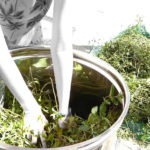 MINT ESSENTIAL OIL: CULTIVATION AND PRODUCTION
MINT ESSENTIAL OIL: CULTIVATION AND PRODUCTION CITRUS FRUITS AND ALZHEIMER’S DISEASE: NEW DISCOVERIES
CITRUS FRUITS AND ALZHEIMER’S DISEASE: NEW DISCOVERIES MINT ESSENTIAL OIL: USES AND PROPERTIES
MINT ESSENTIAL OIL: USES AND PROPERTIES



